May 1, 2024 | 22:11 GMT +7
May 1, 2024 | 22:11 GMT +7
Hotline: 0913.378.918
May 1, 2024 | 22:11 GMT +7
Hotline: 0913.378.918
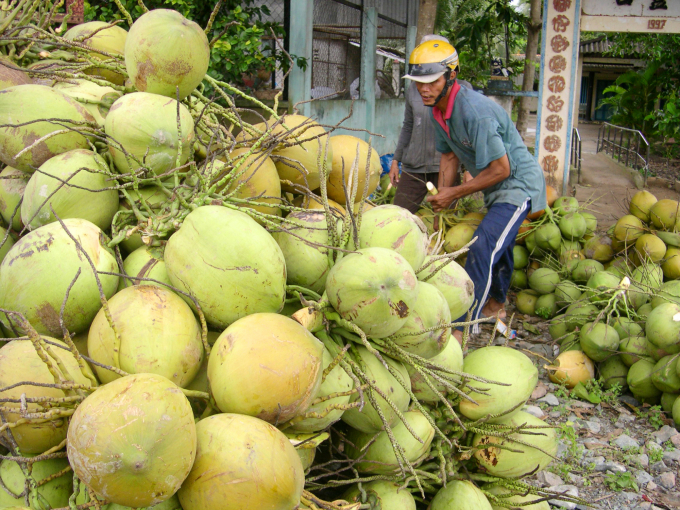
Unprocessed farming products have low economic value when exported to other countries. Photo: Le Hoang Vu.
Agriculture officials in localities across Vietnam emphasized the importance of processing in increasing the value-added to Vietnamese fruits.
Doan Van Danh, director of Ben Tre Province’s Agriculture and Rural Development Department said that years ago, the province was highly reliant on the export of raw coconut to China, which made the struggle whenever China refused to import coconut and local farmers were forced to sell coconut at low prices.
Now, Vietnam’s exports of agriculture products depended less on China’s import, he said, adding that a fundamental solution was to encourage enterprises to invest more in food processing.
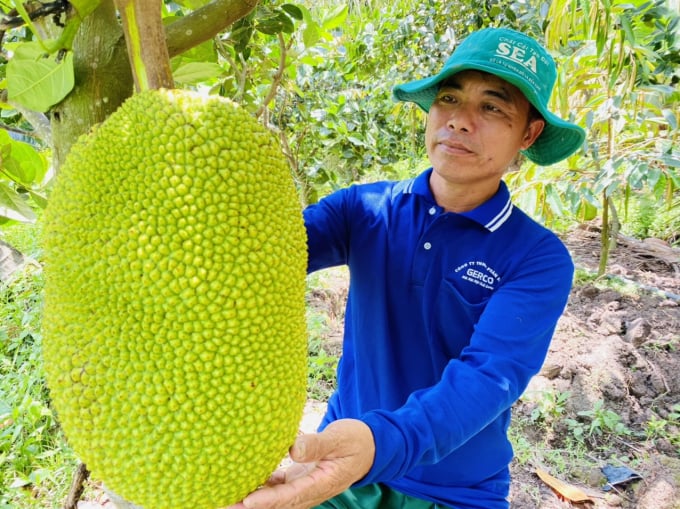
Thai jack fruit is grown in Mekong Delta region. Photo: Le Hoang Vu.
For examples, Luong Quoi Company used to purchase 500,000 coconuts daily and have yearly revenue of about VND400 billion. Now, it pursued the same quantity but with deep processed coconut products, they could gain a yearly revenue of VND 1 trillion, Danh said.
“Thanks to further processing, farmers could sell coconuts at better prices, more jobs are created, enterprises also gain better profits,” he said.
It was necessary to call on and create favourable conditions for major enterprises to invest in food processing as raw fresh farming products had a low value and the exports of such products were badly reliant on importers who, in cases, imposed low prices to buy the products, he said.
Danh also emphasised the role of co-operatives as their involvement in value chains helped make high-quality products.
Instead of working with hundreds of farming households, enterprises could co-operate with co-operatives to form concentrated production areas. Co-operatives also helped to ensure systematic consistent farming technique to be used in large areas.
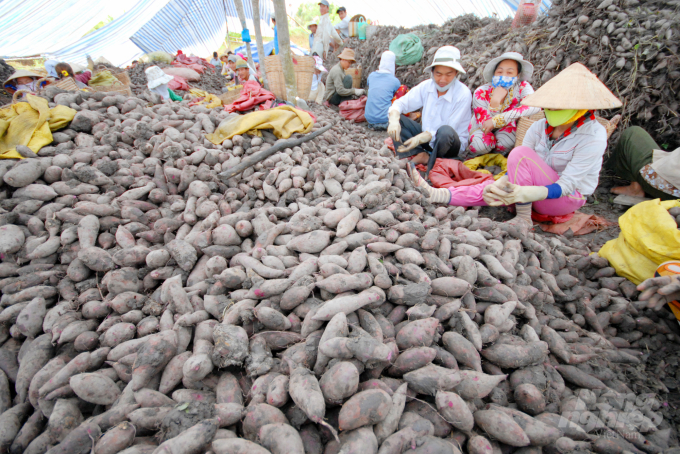
Farmers in Binh Tan District in Vinh Long Province harvest sweet potato. Photo: Le Hoang Vu.
Pham Minh Truyen, director of Tra Vinh Province’s Agriculture and Rural Development Department said that it was also necessary to increase regional linkage.
Currently, Vietnam still lacked enterprises that are big enough to invest in processing and seek more markets, Truyen said.
Tran Thai Nghiem, vice director of Can Tho Province’s Agriculture and Rural Development Department said that the province had over 21,000 ha of fruits and almost all typical fruits of the southern region were grown in the province.
However, Vietnam faced difficulties in exporting fruits because of its modest ability in post-harvest storage and processing.
With a developed processing industry, some countries could have their fruits fresh for 5-6 months after harvesting.
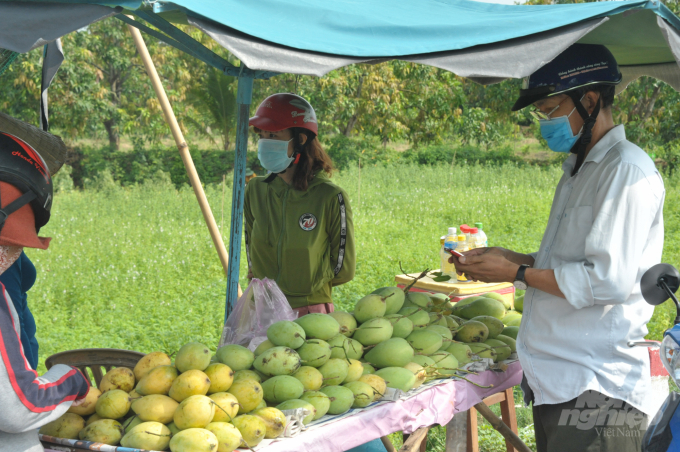
Vietnamese mango is among farming products that face difficulties to enter overseas markets. Photo: Le Hoang Vu.
“Five Central Highlands provinces have a total of about 9,060 ha of passion fruit, of them, Gia Lai Province has more than 3,000 ha with the production of 84,000 tonnes. Gia Lai is known to have the highest processing rate of 18 per cent while the percentage in other provinces is less than 2 per cent. Gia Lai Province has such a high processing rate thanks to the fruit processing factory Doveco of Dong Giao Company which cooperates with co-operatives. Each of the co-operative on average earns VND 43-68 billion yearly from providing passion fruit for the factory,” Tran Minh Hai, Director of the Center for Training and Consulting on Cooperative Economy under School of Agriculture and Rural Development Managers II.
The southern province of Vinh Long had 14,000 ha of sweet potato, producing about 350,000 tonnes per year but only 3,000 tonnes accounting for 0.9 per cent of the production - was processed, Hai said.
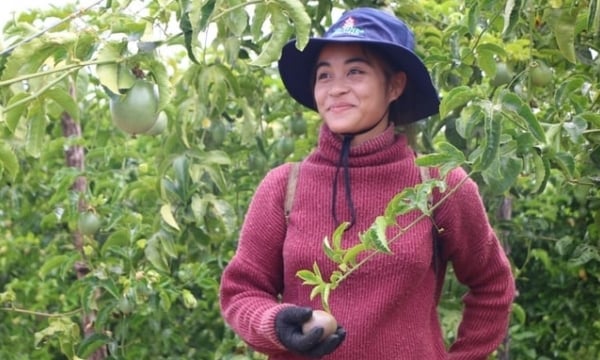
(VAN) With advantages in production area and market demand, passion fruit is emerging as a key crop in the Central Highlands, providing sustainable economic benefits for local residents.
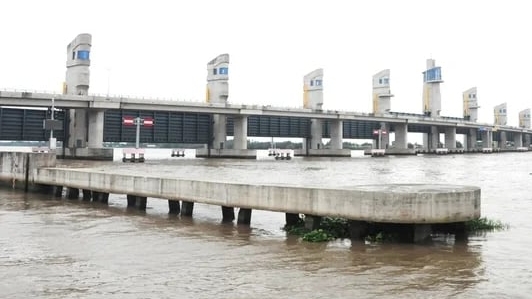
(VAN) Large-scale irrigation projects in the Mekong Delta have safeguarded a beneficiary area spanning more than 1 million hectares, significantly mitigating damage caused by drought and saltwater intrusion.
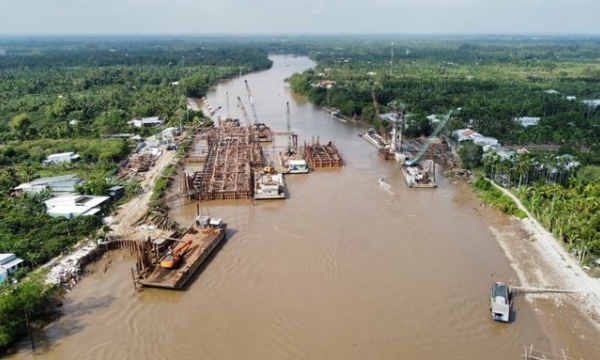
(VAN) Residents along the south bank of the Hau River are anticipating the Rach Mop lock by the end of 2024, along with projects to fortify the irrigation system to prevent saltwater intrusion.
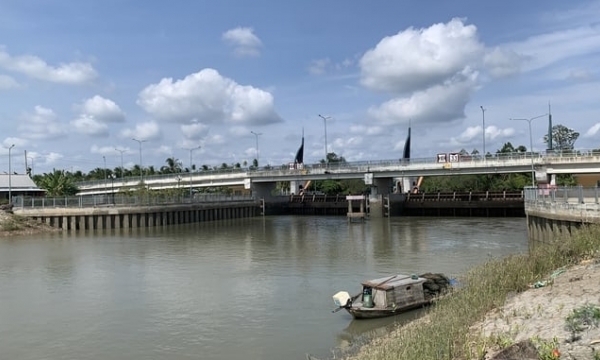
(VAN) The Bong Bot - Tan Dinh sluice delivers fresh water to meet the production demands of thousands residing in Tra Vinh province's coastal areas.
/2024/04/26/0500-3-135847_403.jpg)
(VAN) According to Dr. Dao The Anh, if indigenous varieties that are highly nutritious and adapt to climate change can be developed, the community will greatly benefit.
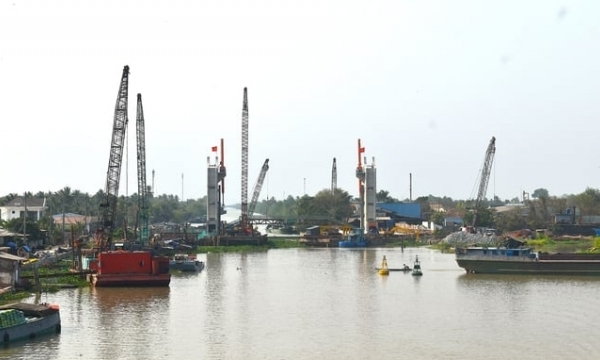
(VAN) The Nguyen Tan Thanh sluice is crucial in preventing salinity and storing freshwater to meet the daily needs of over 1.1 million residents in Tien Giang and Long An provinces.
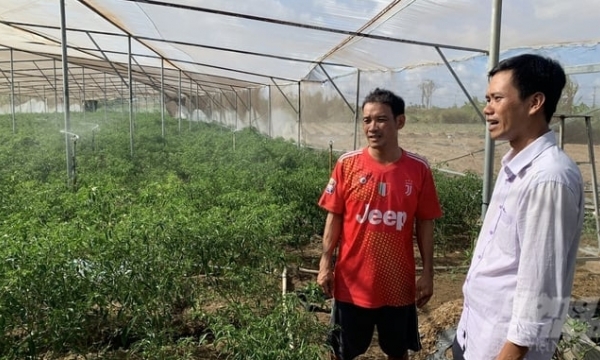
(VAN) The project, sponsored by the European Union, is implemented in Dong Thap, Kien Giang, and Tra Vinh provinces, with a total funding of 4.2 million Euros.